As humans, some bodily functions we have – although not very tasteful – are perfectly normal occurrences.
Passing gas (from either end) isn’t the most pleasant thing to happen after eating a meal, but if you say you don’t do it then you’re clearly lying to yourself.
I say it’s not pleasant but in some cultures it’s actually a sign of respect for the food.
And most of the time, it’s a sign of healthy bodily function, as it aids normal digestion.
However, how do we know when farting, or in this case burping, is a cause for concern?

Excuse you. (Getty Stock Image)
What causes burping?
The good news is that burping after a meal, no matter how much it gets you dirty looks from across the table, is in no way a sign of bad health and there are plenty of reasons as to why we do it.
You could have swallowed some air (yum) or wolfed your food down a bit too fast, burping is simply your body’s way of pushing out excess amounts of air from your upper digestive tract.
Even excessive burping is common according to the Mayo Clinic, and isn’t necessarily a cause for concern, but maybe a little switch up to your lifestyle is needed.
However, burping after a meal can become concerning if it regularly exceeds the average, which is four times by the way, or is paired with other symptoms.
What health issues can cause excessive burping?
Gastroenterologist Dr Alison Schneider, MD, told The Cleveland Clinic that regularly going well above the ‘normal’ amount may be a sign you need to see the doctor.
But why?
Depending on the food you’ve eaten for dinner that night, if it’s something particularly belch-worthy, burping more than four times might just be a one off.
Dr Schneider says: “You’re more likely to swallow air and burp if you eat too quickly, drink carbonated beverages, chew gum, suck on hard candies, drink through a straw or have dentures that do not fit well.”
Those pesky dentures, eh.
However, when paired with other symptoms like stomach pain, bowel issues, heartburn or bloating, then it’s time to call your local GP at 8AM on the dot and pray that you can get seen some time this year.
If you’re experiencing heartburn alongside your burp-athon, Gastroesophageal reflux disease (GERD) might be lurking. GERD is a ‘common condition, where acid from the stomach leaks up into the oesophagus (gullet).’
Another is Gastritis, which ‘can be associated with pain or discomfort in the upper abdomen, feeling full soon after eating a meal, nausea, vomiting and loss of appetite,’ Dr. Schneider said.
Oh, but it doesn’t end there.

There’s a time and a place, but if in doubt, you know what to do. (Getty Stock Images)
Bloating, gas, abdominal pain, diarrhoea or constipation? Yep, that could be Irritable Bowel Syndrome (IBS).
IBS, as explained by the NHS, has ‘no cure, but diet changes and medicines can often help control the symptoms.’
If the belching is really bad to the point where it’s affecting your day-to-day life, although rare, could potentially be a symptom of stomach cancer, which can cause feelings of constant fullness, weight loss and lethargy.
“If burping or belching too much is interfering with your daily life or if pain or other symptoms accompany this symptom, this may indicate another underlying illness requiring treatment,” Dr. Schneider continued.
Even if you have no other symptoms but excessive burping continues, you may have aerophagia and supragastric belching, according to health information site Medical News Today.
It explains these are conditions in ‘which a person moves air into their oesophagus, either consciously or unconsciously’.
The bottom line here is, if you’re in any doubt it’s always better to get it checked out – and no I didn’t mean for that to rhyme.
Hopefully, chances are you just scoffed your food down a bit too quick, in which case, slow down because no one is going to take it away from you.
Featured Image Credit: Getty Stock Images
Topics: NHS, Health, Food And Drink
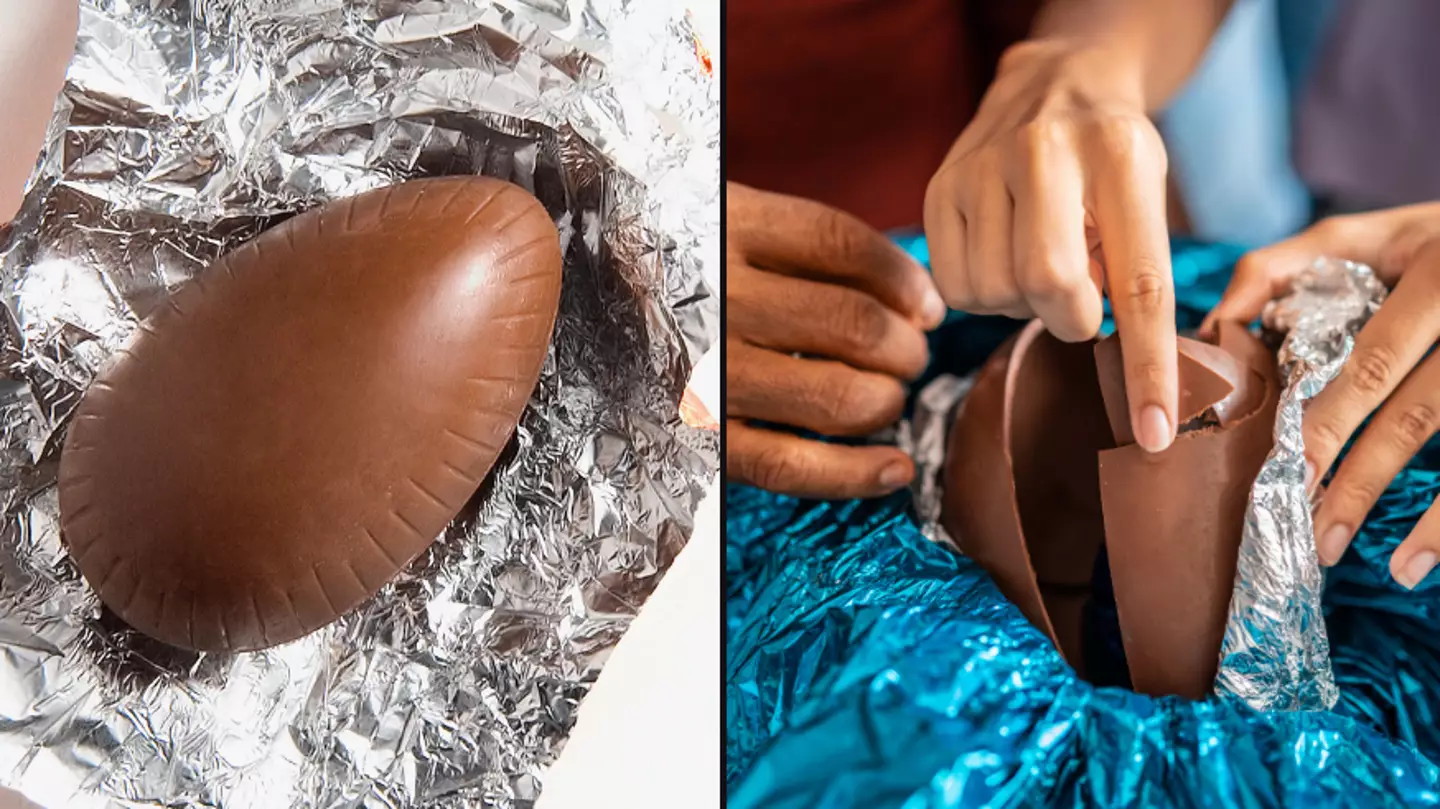
The Easter holidays are finally upon us – which means that most people across the country will be celebrating Jesus’ resurrection with a smorgasbord of chocolate eggs this weekend.
It’s the only day of the year where it is acceptable to eat a bit of choccy for breakfast, lunch and tea… or so we thought.
According to an NHS doctor, stuffing our faces with egg-shaped confectionery shouldn’t be a customary celebration while celebrating the Christian holiday.
But people really aren’t best pleased with the medic raining on their parades ahead of Easter Sunday (31 March).
Dr Andrew Kelso has been met by backlash on social media after he urged people to enjoy their chocolate treats ‘in moderation’, warning that the increased calorie intake a lot of us will indulge in ‘doesn’t do our bodies any good’.
In a now-deleted NHS blog post, he managed to burst the bubbles of millions of people who had planned to enjoy an eggs-travaganza of Easter-related nibbles before passing out into a chocolate-induced coma.
But if you take heed of Dr Kelso’s advice, it seems your going to have to rearrange your schedule for this Sunday.
However, a quick glance on online platforms such as X suggests that it doesn’t seem like a lot of people are intending to listen to the former consultant neurologist.
Sharing their disapproval of Dr Kelso’s stance on overindulging over Easter, one person wrote: “Easter finally has a Grinch.”

Matthew Chattle/Future Publishing via Getty Images
Another wrote: “I just bought £80 worth of Easter eggs for me and my husband to eat over the weekend to spite Dr Andrew Kelso.”
A third added: “I literally live in England, there is nothing good to live for anymore. Let me eat my damn egg.”
And a fourth joked: “NHS doctor reveals they haven’t seen the size of Easter eggs recently.”
As you can gather, his blog post really didn’t get the reception which he thought it would.
Dr Kelso, who is a medical director at the NHS Suffolk and North East Essex Integrated Care Board, told people to think twice about gorging on chocolate eggs and polishing them off in one go.
The post on the board’s website read: “The Easter holidays are a fantastic opportunity for rest and relaxation with our families, which is so important for our wellbeing.
“This will also be a time when, for many of us, our consumption of chocolate and sweets increases.
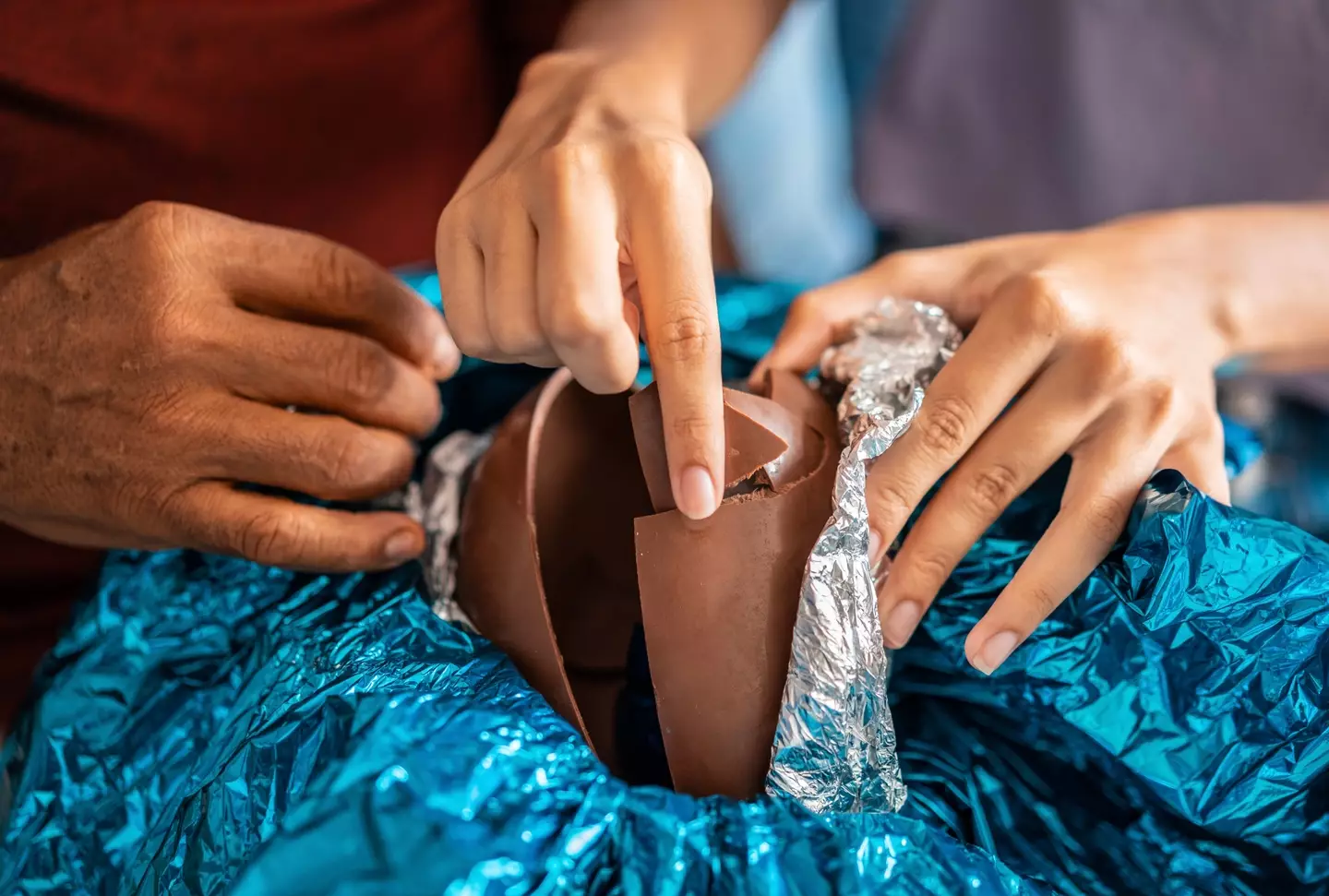
Getty Stock Image
“Yet, many people don’t realise that an average Easter egg contains around three-quarters of an adult’s recommended daily calorie intake.
“At a time like this when we are seeing significant increases in cases of obesity and Type 2 diabetes, as well as tooth decay, I urge people to enjoy their Easter eggs in moderation and resist the urge to eat a whole egg in one go.”
“Enjoy your sweet treats,” he said. “But please don’t overdo it.”
Dr Kelso said that people chowing down on chocolate, hot cross buns, cakes and biscuits might not realise that it ‘all adds up to a lot of extra sugar and calories’.
As he expects Easter to be a ‘busy period for NHS staff and services’, the medic also encouraged people to stock up on over-the-counter remedies to relieve pressure on the health care system.
He advised Brits to make sure they have ‘paracetamol, sticking plasters, indigestion remedy and antidiarrheal medicine’ handy just incase.
Featured Image Credit: Getty Stock Images
Topics: Easter, Food And Drink, Health, NHS, UK News

With the summer months rolling around and the temperature beginning to rise, it’s more important than ever to stay properly hydrated.
It’s not a bad idea to make sure you’ve got access to water wherever you go to avoid getting too thirsty, but you’d best beware of the dangers if that water has gone warm.
That’s according to Sarah Lawson, a food safety expert with Storage Box Shop who warned about picking up a bottle of water that’s been left out in the sunlight.

Maybe don’t drink from plastic bottles that have been left out in the sun for ages. (Getty Stock Photo)
She said: “Do not drink bottled water that has been left in the sun or a hot environment, like a car.
“The heat can cause harmful chemicals to leach from the plastic into the water.
“Staying hydrated is important, but drinking water that has been left in the heat is not safe. Always keep your bottled water cool to protect your health.”
Here’s the science-y bit. When your bottle of water heats up it can result in chemicals from the plastic getting into the water, and these chemicals can be harmful to drink.
The chemicals include Bisphenol A (BPA), which are mostly found in food packaging and plastic bottles, and phthalates that are used to make plastics more flexible and transparent.

Water is really important as summer rolls around, but keep in mind where it’s from. (Getty Stock Photo)
With them seeping into the water if it gets warm it can result in health issues, such as your stomach or head aching, while the chemicals can also make you feel dizzy – which is the last thing you need on a hot day.
In some cases, consuming chemicals can affect your body’s hormones, as studies have shown that phthalates can have this effect on living creatures.
According to the National Institute of Environmental Health Sciences, phthalates are ‘linked with developmental, reproductive, brain, immune, and other problems’.
Therefore it’s a good idea to go and look for some chilled water, or take steps to keep your bottle of water cool and protected from the sun’s rays.
Quaffing your preferred beverage of hydration is all well and good, but you ought to pay attention to the container it’s in as well.
The reason drinking warm water can have some health dangers isn’t because it’s warm but because of what that heat does to the container it’s in.
If your drinks are in plastic bottles that can lead to some problems as you could be chugging plastic right alongside your water.
In a litre of bottled water, it’s thought there are around 240,000 plastic particles, compared to an average of just 5.5 plastic particles in tap water.
Featured Image Credit: Getty Stock Images
Topics: Food And Drink, Health, Science

A doctor has explained why twitching in your body could be an early sign linked to three deadly diseases.
On the whole, the NHS has insisted that twitches in eyes and muscles ‘are usually nothing to worry about’ and are often linked to stress, anxiety, tiredness, caffeine, or medicine use.
However, Monika Wassermann, MD at Oliolussio, has warned that it could be a sign of one of three types of cancers, reports the Express.
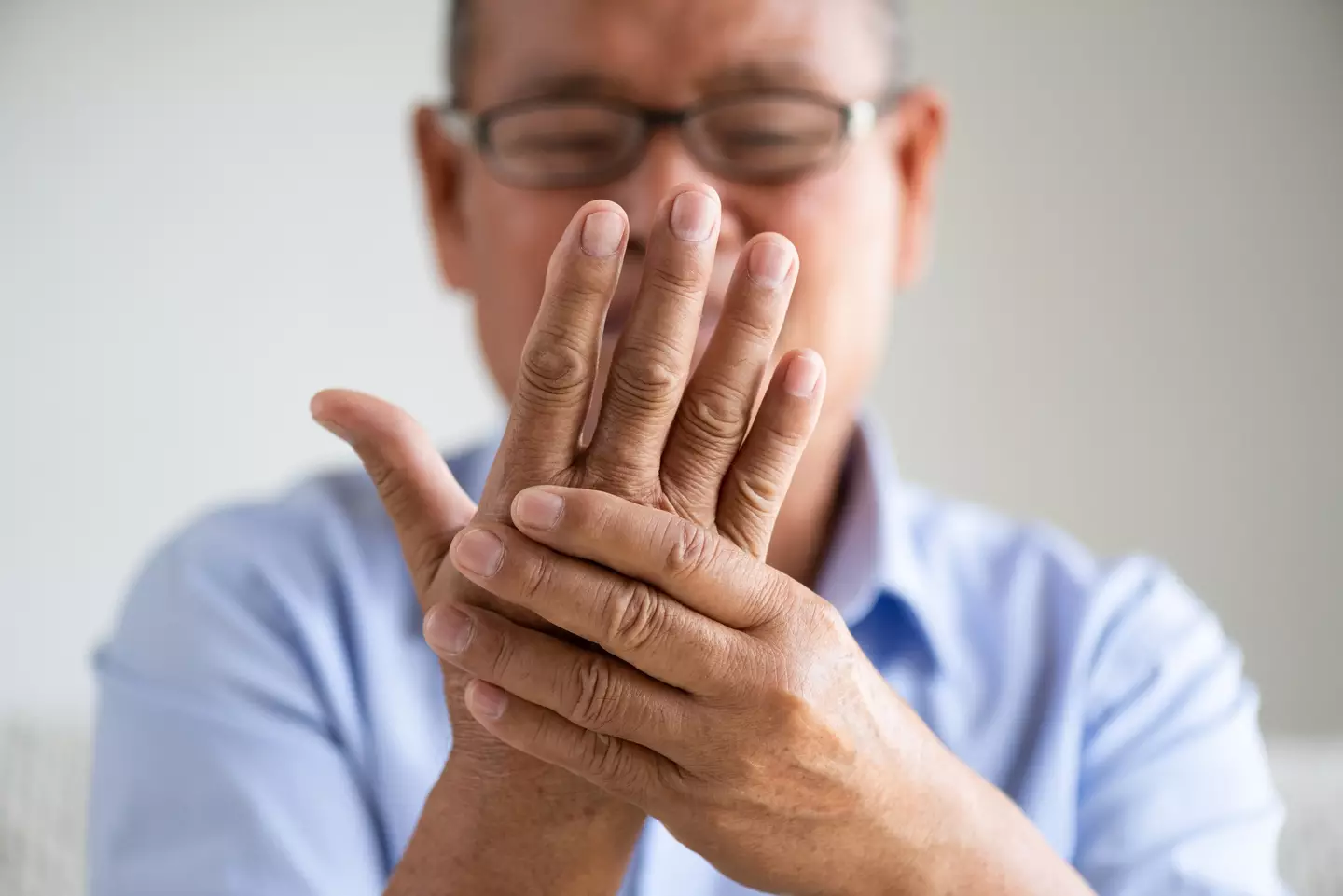
Early signs of twitching could mean something more serious (Getty Stock Images)
The doctor explained that twitching could be a sign of a brain tumour.
She said: “While seizures mostly arise from epilepsy, a brain tumour can irritate the brain’s neurons and cause tingling, twitching, or muscle contractions.
“If a tumour develops in the occipital lobe, temporal lobe, or brain stem, one may have double or blurred vision. Another indicator is eye-twitching.”
Meningioma, one of the most common types of a brain tumour, takes place when it starts to press on the brain and stop its usual function.
“The frontal lobe manages decision making, problem-solving, concentration, and thinking speed functions,” she explained.
Tumours can also press on blood vessels and affect the spinal cord.
Tumours that reach the spinal cord could lead to:
1) Prostate cancer
2) Lung cancer
3) Breast cancer

If you’re twitching regularly then contact your GP (Getty Stock Images)
Prostate, lung, and breast cancer can spread to that spinal cord area.
Leukaemia, another type of blood cancer, is also known to reach the backbone, which usually shows in ‘single or multiple muscle twitches, jerks, and/or spasms’, according to cancer.Net.
Cancer Research UK explains: “Seizures happen in up to 80 out of every 100 people (up to 80 percent) with a brain tumour.
“You might have some jerking or twitching of your hands, arms or legs. Or your seizure might affect your whole body.
“Having a seizure is very frightening. Different illnesses can cause seizures and it is important that you see your doctor immediately or go to A&E if you have one.”
If you start to notice problems with your eyes, then that’s also a sign that you could have a tumour.
“You might find that your eyesight is getting worse and glasses are not helping,” Cancer Research UK note.
“Or your vision comes and goes. You might lose the ability to see out of the corner of your eyes, making you bump into cars or objects on your left or right side.”
If you’ve been affected by any of these issues and want to speak to someone in confidence, contact Macmillan’s Cancer Support Line on 0808 808 00 00, 8am–8pm seven days a week.
Featured Image Credit: Daria Kulkova via Getty Images/Getty Stock Image

Having a hangover is almost like paying tax for going out and having a few too many – it isn’t ideal, it’s not worth it, but we have to pay the price for our actions sooner or later.
However, there is a reason why it is advised to enjoy your vices in moderation, as in the long-term, alcohol can negatively affect your health if you’re not careful.
In fact, the substance is actually poisonous, and drinking too much of it can result in a swift trip to A&E, so it’s important to be aware of the negative effects that can follow the day after drinking, and if you should be worried.
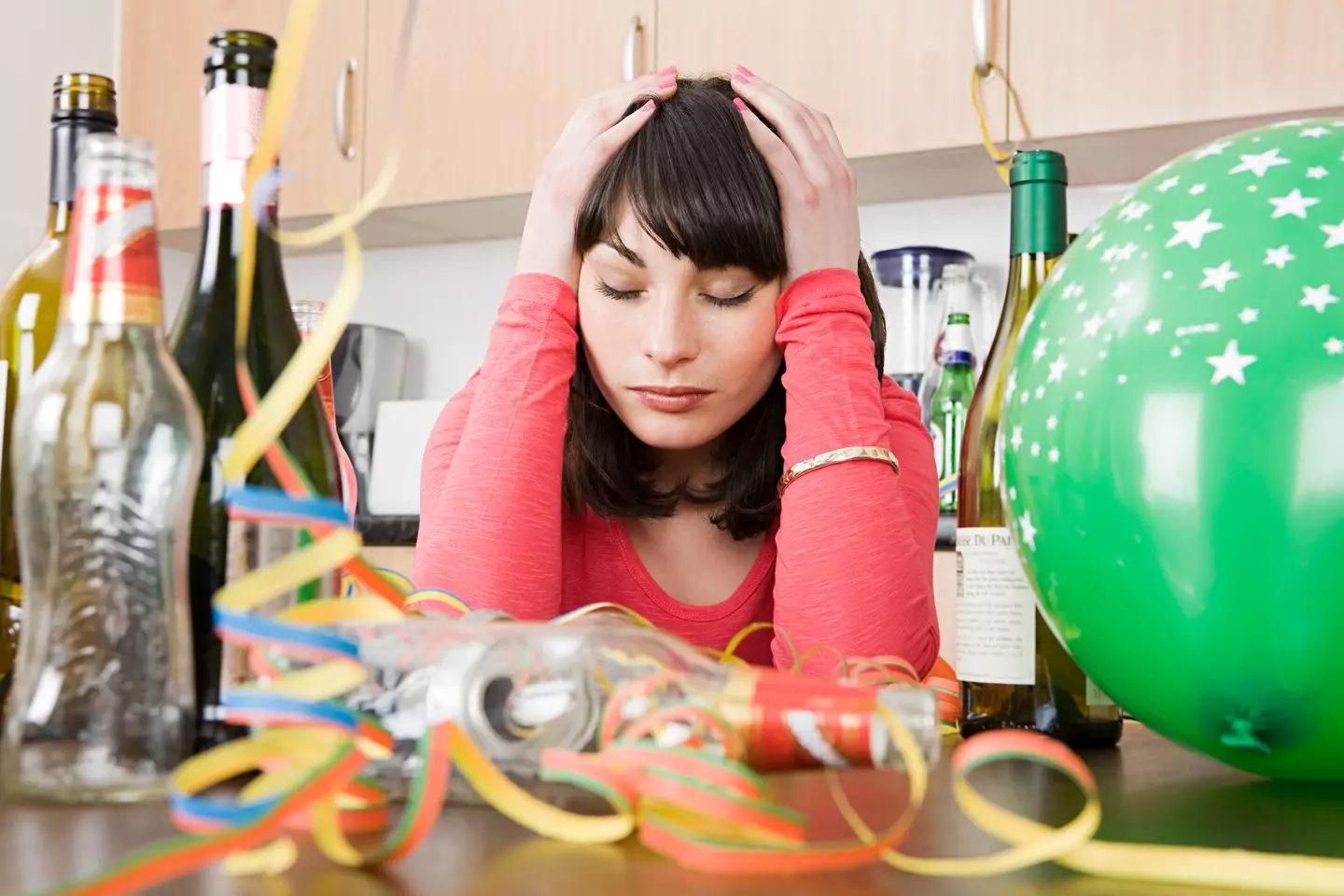
We’ve all been there, the dreaded day after partying that bit too hard. (Getty Stock Photo)
What a ‘hangover’ actually is
We all know that it’s feeling a bit under the weather, mentally and physically, the day after putting a shift in on the pints, but numerous physiological and psychological symptoms could be at play when you’re recovering.
The severity of the hangover heavily depends on how much you’ve drank, what exactly you’ve drank, and how dehydrated you are.
Bottom line here is it’s not a fun thing to go through, and it’s worth thinking more about the next day when you’re on your next night out.
Signs to look out for
There are number of things that signal the dreaded hangover.
Feeling tired and weak are a giveaway, and feeling dehydrated with a headache is one of the main signs of a serious hangover.
Nausea, sensitivity to bright lights and loud noises and other times of pain could also be an ever-present, but just remember that the symptoms do pass in the end, and can be helped with a lot of water and healthy food.
These are symptoms of a hangover, but what if they’re more serious?

There are ways to tell if what you have is more serious than a hangover. (Getty Stock Photo)
Could it be something more severe?
But it could be more serious, depending on the symptoms experienced but there is the possibility that you could have alcohol poisoning.
Different to a hangover, this can start to occur while you’re drinking, and heavy drinking can result in any one of these things happening, and if you spot these in someone, you should call an ambulance:
- Confusion
- Vomiting
- Seizures
- Slow breathing (less than eight breaths a minute) or irregular breathing (a gap of more than 10 seconds between breaths)
- Blue-tinged skin or pale skin
- Low body temperature
- Difficulty remaining conscious
- Becoming unconscious and unable to be woken.
It’s important to keep the person warm, sit them up straight and provide them with plenty of water to avoid dehydration before emergency services get there.
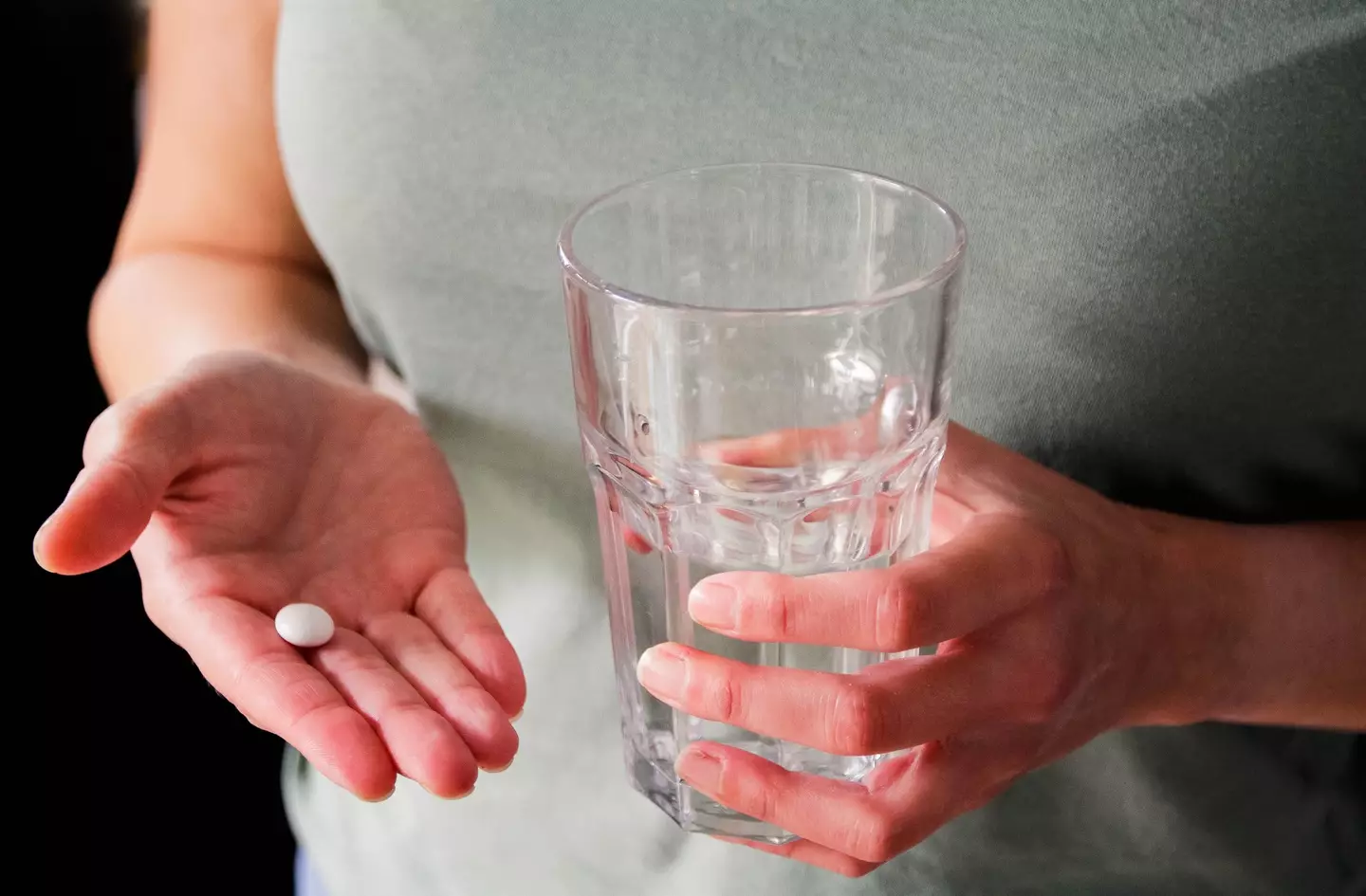
Sometimes, a paracetamol and a glass of water the next morning won’t cut it. (Getty Stock Photo)
How can you avoid all of this?
Whether it be avoiding a hangover or limiting your chances of getting alcohol poisoning, there are ways to steer clear of these things and stay healthy.
The easiest solution is to cut out drinking altogether, but it may be difficult to do this if you’re going to certain places that are centred around drinking. But staying as hydrated as possible will certainly lower the chances of a hangover, so it’s important to keep drinking water or maybe swap out a bev for a soft drink once in a while.
Drinking no more than 14 units of alcohol per week will significantly reduce the long-term risks of harm from alcohol-related health issues.
Some of these long-term effects include cardiovascular disease, cancer, diabetes, obesity, liver disease, and several mental health conditions.
Featured Image Credit: Getty Stock Images
Topics: Health, Alcohol, NHS, Food And Drink



